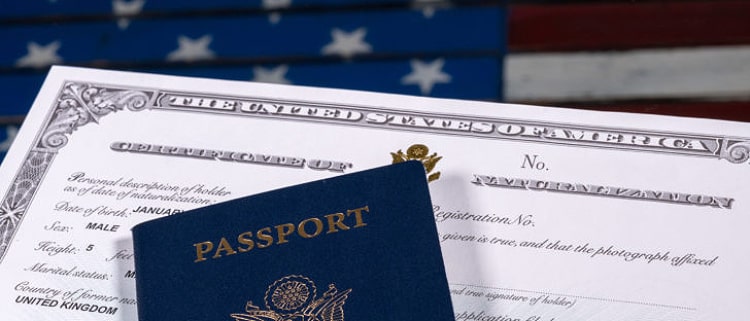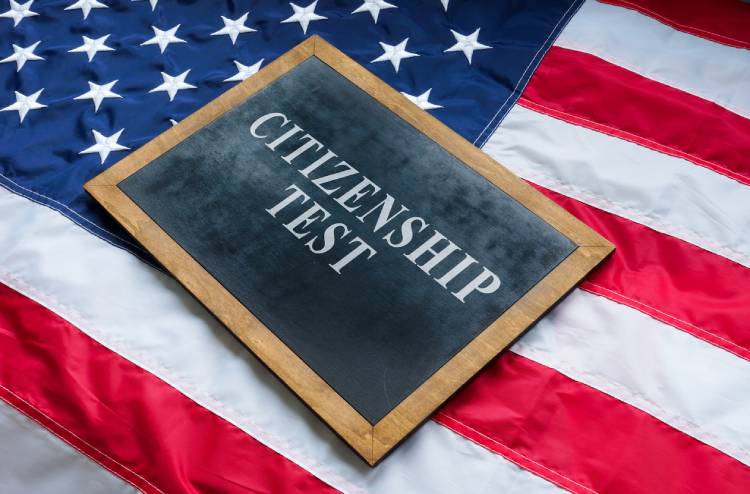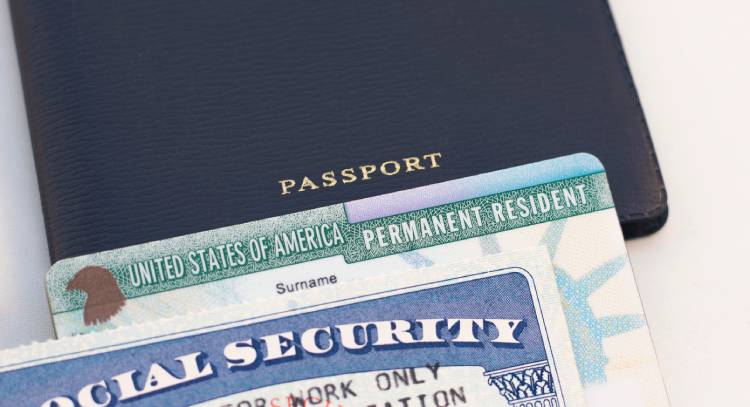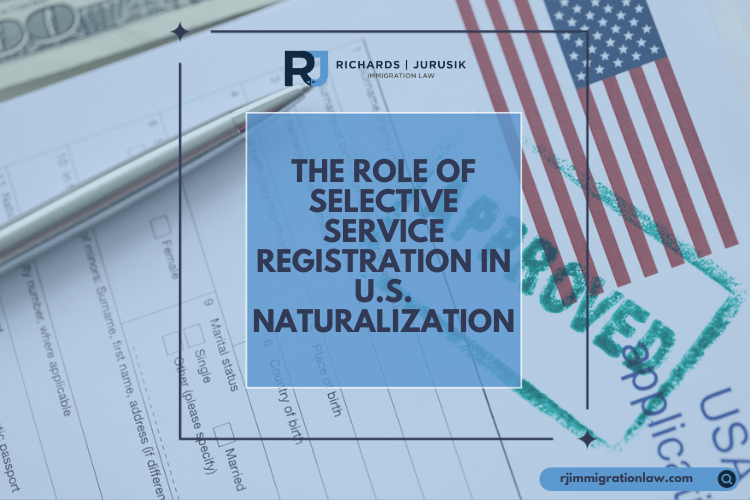Gaining U.S. citizenship for individuals born outside the United States to American parents can seem daunting. This guide simplifies the procedure, outlining the paths to citizenship, the required documentation, and how to submit your application.
Understanding U.S. Citizenship Categories
- Born in the U.S. – You are automatically granted citizenship if you were born in the United States or certain U.S. territories.
- Born Abroad to U.S. Citizen Parent(s) – You may be eligible for U.S. citizenship if at least one of your parents was a U.S. citizen at birth. The specific requirements depend on your birth year and your parents’ citizenship status, including the periods they lived in the U.S.
- Naturalization – Naturalization is a path for those who are not born U.S. citizens. Eligibility criteria include being of a certain age, having permanent residency status, demonstrating good moral character, knowledge of the U.S. government, and proficiency in English.
- Through U.S. Citizen Parents (for Minors) – Minors born abroad may claim U.S. citizenship if they have at least one U.S. citizen parent.
Securing Proof of U.S. Citizenship
- Necessary Documentation – Proof of citizenship requires specific documents, which can include:
- Birth certificates (for those born in the U.S. or abroad to U.S. citizens)
- Proof of permanent residency or valid passports
- Parents’ physical presence documents in the U.S.
- Identifying the Right Method— Depending on your situation, you should Determine whether to file your documentation with the U.S. Citizenship and Immigration Services (USCIS) or the U.S. Department of State.
- USCIS Form N-600, Application for Certificate of Citizenship
- USCIS Form N-600K, Application for Citizenship and Issuance of Certificate Under Section 322
- USCIS Form N-644, Application for Posthumous Citizenship
- Form FS-240, Consular Report of Birth Abroad (CRBA)
- Form DS-11, Application for a U.S. Passport
1) Form N-600, Application for Certificate of Citizenship
Form N-600 serves a specific purpose: to request a Certificate of Citizenship for those who are U.S. citizens under their birth or automatic acquisition of citizenship before age 18. Here’s who should consider filing:
- Individuals Born Abroad to U.S. Citizen Parents: If you were born outside the United States and at least one of your parents was a U.S. citizen at birth, you might be eligible to certify your citizenship.
- Those Who Became Citizens Automatically: If you automatically acquired U.S. citizenship after birth but before you turned 18—under specific legal conditions—you or your parent/legal guardian can file Form N-600 on your behalf.
Key Conditions for Eligibility
Understanding whether you automatically became a U.S. citizen involves navigating various conditions and laws, which differ based on whether you claim citizenship by birth or after birth but before turning 18. Key conditions include:
- At least one parent was a U.S. citizen when you were born or before you turned 18.
- You are the biological child of that U.S. citizen parent.
- You were lawfully admitted to the U.S. for permanent residence.
- You lived in the U.S. under the legal and physical custody of your U.S. citizen parent.
Adopted Children and Citizenship
Adopted children may also acquire U.S. citizenship through their adoptive U.S. citizen parents, depending on the law applied. Notably, stepchildren do not qualify under this provision.
The Law in Effect at Your Birth
The law determines your citizenship status at the time of your birth. The governing law was last amended under the Child Citizenship Act on February 27, 2001. Those born before November 14, 1986, might have different criteria and should consult USCIS for clarification.
Filing the Application
Filing Form N-600 is not a request to become a U.S. citizen but to obtain a certificate recognizing your citizenship status from birth or through automatic acquisition before age 18. You can file this application at any age if you meet the conditions outlined.
2) Form N-600K, Application for Citizenship and Issuance of Certificate Under Section 322
Form N-600K, Application for Citizenship and Issuance of Certificate Under Section 322, is designed for children who regularly reside outside the United States but are entitled to U.S. citizenship through their parents. It falls under the Immigration and Nationality Act (INA) section 322, facilitating the formal recognition of citizenship and the issuance of a Certificate of Citizenship.
Eligibility Criteria
The eligibility for filing Form N-600K is specific, targeting children under the age of 18 who meet the following requirements:
- Marital Status: The child must be unmarried.
- Oath of Allegiance: The U.S. Citizenship and Immigration Services (USCIS) must administer the Oath of Allegiance to the child before they reach 18.
- Residence: The child must regularly reside outside the United States.
- Custody: The child must be under the legal and physical custody of a U.S. citizen parent.
- Physical Presence of the Parent: The U.S. citizen parent must have been physically present in the United States for at least five years, two of which were after reaching 14 years of age. If this condition is not met, the child’s U.S. citizen grandparent can fulfill this requirement.
- Temporary Presence in the U.S.: The child must be legally present in the United States at the time of the interview.
Special Considerations for Military Families
Children of U.S. Armed Forces members may complete the process outside the United States if residing abroad under official orders. These children are exempt from the temporary presence, lawful admission, and status maintenance requirements.
Adoption Cases
Adopted children can also be eligible under specific conditions, with requirements varying based on the adoption’s legal circumstances, including Hague Convention adoptions, orphan cases, and other adoption scenarios.
Filing for Form N-600K
Eligible parties to file on behalf of the child include:
- The U.S. citizen parent with custody of the child.
- The U.S. citizen grandparent, if the qualifying parent is deceased.
- The U.S. citizen’s legal guardian must be present within five years of the qualifying parent’s death.
Who Should Not File?
This application is not suitable for:
- Children who have already automatically acquired citizenship.
- Step-parents without a biological or legal adoption relationship.
- Situations aiming to replace a lost or stolen Certificate of Citizenship.
3) Form N-644, Application for Posthumous Citizenship
The N-644 form is a unique application used to grant U.S. citizenship posthumously to certain deceased veterans of the U.S. Armed Forces. This honor recognizes the sacrifices made by non-citizen service members who died due to injury or disease incurred during active duty in specific periods of military hostilities. Understanding who qualifies for this application is crucial for families seeking to honor their loved one’s bravery and service.
Eligibility Criteria for Decedents
A deceased veteran qualifies for posthumous citizenship under the following conditions:
- Service Period: The veteran served honorably in active duty with the U.S. military, air, or naval forces during designated periods of military hostilities. These periods include World Wars I and II, Korean and Vietnam Hostilities, the Persian Gulf Conflict, the period following the 9/11 attacks, and others specified by Executive Order.
- Cause of Death: The veteran died as a result of injury or disease incurred or aggravated by their military service.
- Enlistment Requirements: The veteran was enlisted, reenlisted, or inducted in the U.S., Panama Canal Zone, American Samoa, or Swain’s Island, was a lawful permanent resident at any time, or was admitted to these locations under military orders during service.
Who Can File Form N-644?
The application for posthumous citizenship can only be filed by specific individuals closely related to or representing the deceased veteran:
- Immediate Family Members: Spouses, parents, children, and siblings of the deceased veteran are eligible to file.
- Legal Representatives: Executors, administrators of the veteran’s estate, guardians, conservators, or committees of the decedent’s next-of-kin, and service organizations recognized by the Department of Veterans Affairs may file. Additionally, the Secretary of Defense or their designee can file after a request by the next of kin.
Application Process
Filing for posthumous citizenship involves submitting Form N-644 to the U.S. Citizenship and Immigration Services (USCIS) within two years of the veteran’s death. If available, the application must be accompanied by documentation of the veteran’s service and death, including forms like DD214 and DD 1300.
The Importance of Posthumous Citizenship
Granting posthumous citizenship is a symbolic gesture, recognizing the ultimate sacrifice made by non-citizen members of the U.S. Armed Forces. It allows the deceased veteran to be honored as a U.S. citizen from the date of their death, and it enables certain family members to apply for benefits or remain classified as immediate relatives for immigration purposes.
4) CRBA: U.S. Citizenship for Children Born Abroad
For American parents living abroad, ensuring their child’s citizenship is crucial. The U.S. government provides a pathway through the Consular Report of Birth Abroad (CRBA), which certifies a child born outside the United States to U.S. citizen parents as a U.S. citizen. This post will guide you through the CRBA, its eligibility criteria, and the application process.
What is a CRBA?
A Consular Report of Birth Abroad (CRBA) is an official record from the U.S. Department of State that recognizes the birth of a U.S. citizen in a foreign country. The CRBA serves as proof of citizenship and is an essential document for various purposes, including passport applications and enrollment in school.
Who Qualifies for a CRBA?
To qualify for a CRBA, the child must meet specific criteria:
- Birth to at least one U.S. citizen parent: The child’s parent(s) must have been U.S. citizens at birth.
- Physical Presence Requirements: The U.S. citizen parent(s) must have lived in the United States for a certain period before the child’s birth. The exact duration varies depending on marital status and whether one or both parents are U.S. citizens.
Required Documents for CRBA Application
Applying for a CRBA involves submitting several documents, including:
- Proof of the U.S. citizen parent’s identity and citizenship.
- Evidence of the parent’s physical presence in the U.S. before the child’s birth.
- Official documentation of the child’s birth.
- Photos of the child.
How to Apply for a CRBA
The application process for a CRBA involves several steps:
- Gather Required Documents: Collect all necessary documentation, including evidence of parental U.S. citizenship and physical presence in the U.S.
- Complete the Application: Fill out Form DS-2029 and prepare for the consular interview.
- Schedule a Consular Interview: Contact the nearest U.S. embassy or consulate to schedule an interview for the CRBA application.
- Attend the Interview: If possible, parents and the child should attend the interview.
5) Form DS-11 Application for a U.S. Passport
A U.S. passport is issued to U.S. citizens and non-citizen nationals. If you’re applying for the first time, if your previous passport was issued when you were under 16, or if it has been lost, stolen, damaged, or expired for more than five years, you must apply in person using Form DS-11.
Required Documents:
- Proof of U.S. Citizenship: This can be a previous U.S. passport, a certified birth certificate, a Consular Report of Birth Abroad, a Certificate of Naturalization, or a Certificate of Citizenship. Photocopies of these documents are also required.
- Proof of Identity: A valid driver’s license, a government ID, or a military ID can be proof. You’ll need the original document and a photocopy.
- Recent Color Photograph: A 2×2 inch passport photo that meets all requirements.
- Application Fees: Check the latest fees on the official website (travel.state.gov), as they are subject to change.
For Minors:
Applications for children under 16 require both parents or the child’s legal guardians to appear in person and provide consent. If only one parent can appear, additional documentation may be required.
How to Submit the Form:
Complete Form DS-11 and submit it in person at a designated acceptance facility. This includes post offices, some public libraries, and other government offices. You cannot submit this form online.
Passport Validity:
- For applicants aged 16 and older, the passport is valid for ten years.
- For applicants under 16, it is valid for five years.
Tips for a Smooth Application Process:
- Double-check all documents for accuracy and completeness.
- Keep a copy of your application and documents for your records.
- Be prepared to pay the fees at the time of application; some facilities only accept certain forms of payment.
Subscribe to Our Resources Blog
Schedule a Consultation with an Immigration Lawyer
We Can Help!
You may have questions regarding U.S. immigration laws and visas. We invite you to contact our team at Richards and Jurusik for detailed guidance and assistance. We aim to provide the most accurate and up-to-date information to make your immigration process smoother and less stressful. The immigration lawyers at Richards and Jurusik have decades of experience helping people to work and live in the United States. Read some of our hundreds of 5-star client reviews! Contact us today to assess your legal situation.







